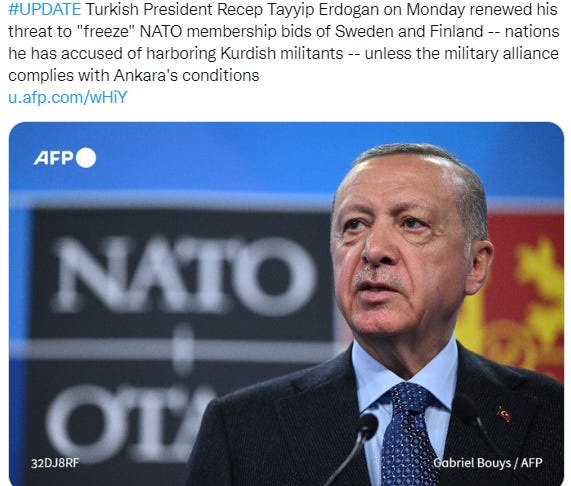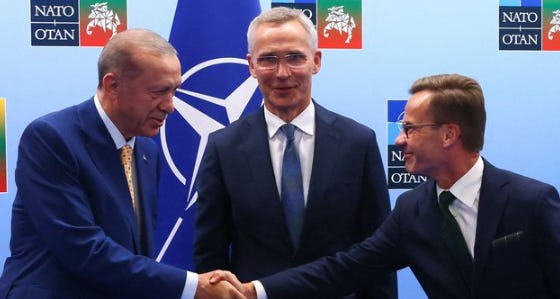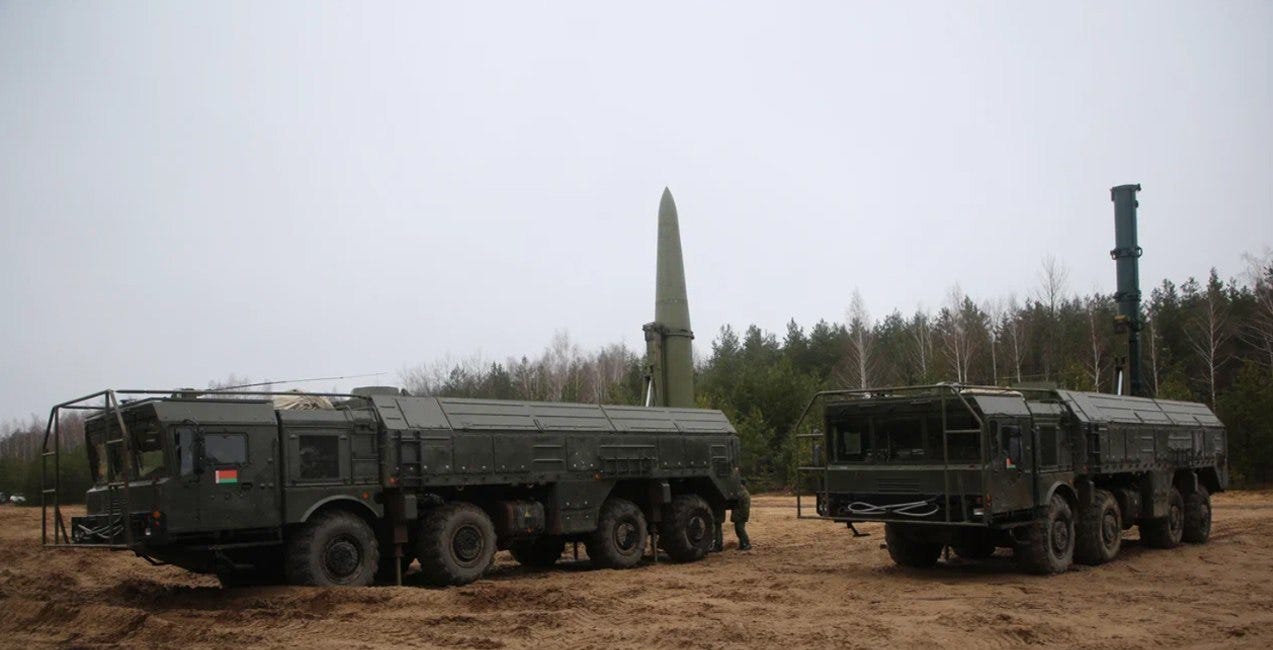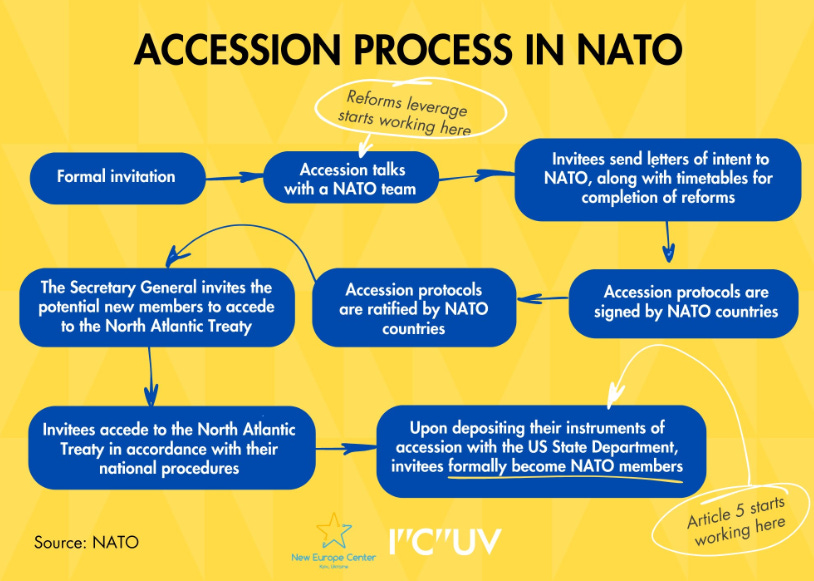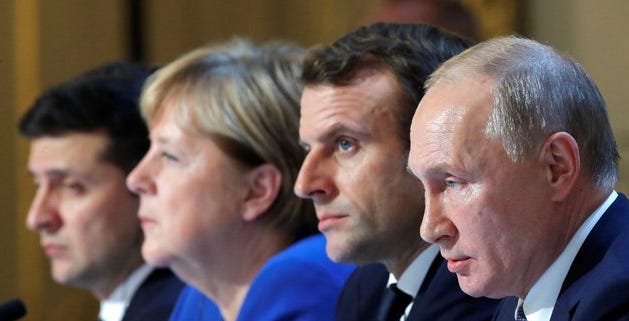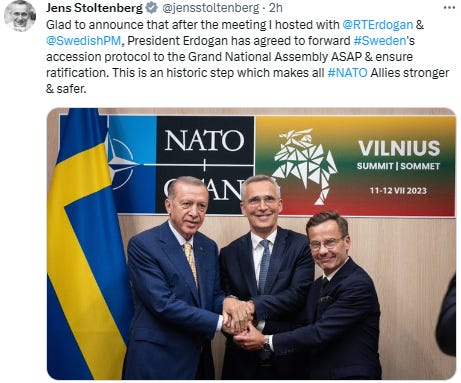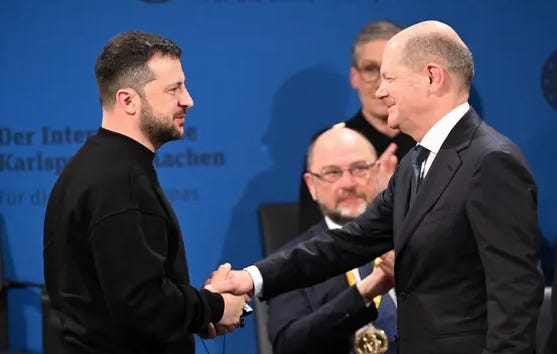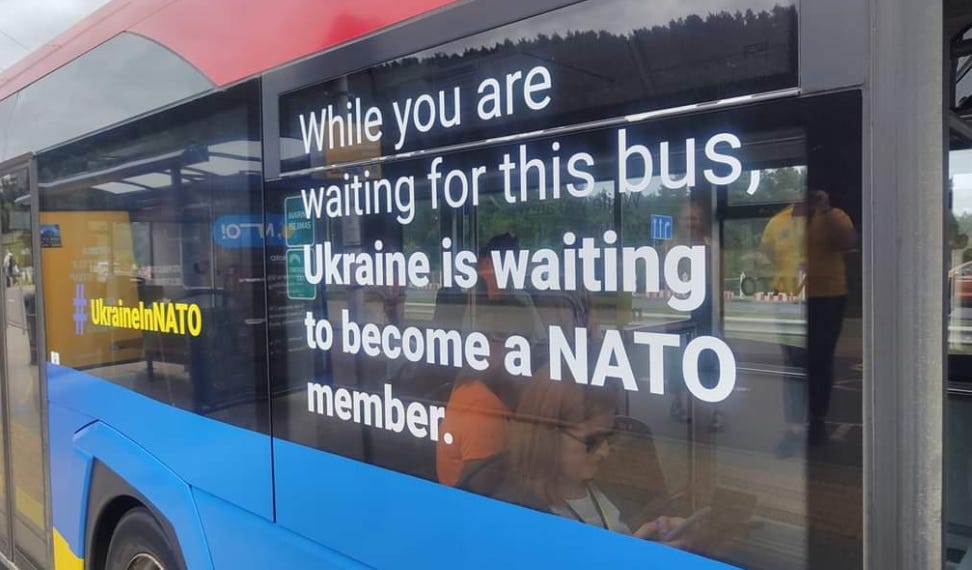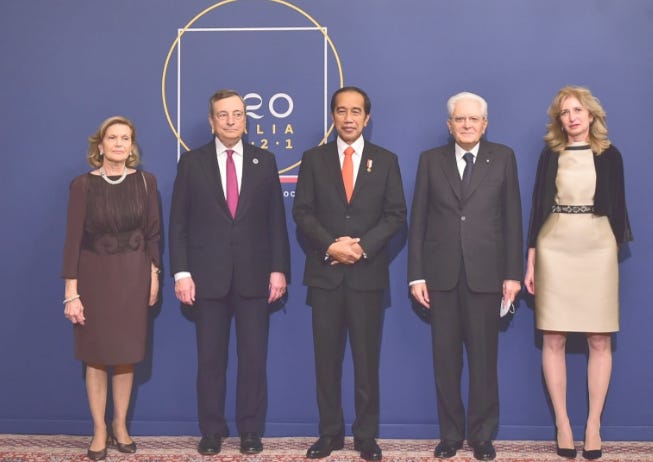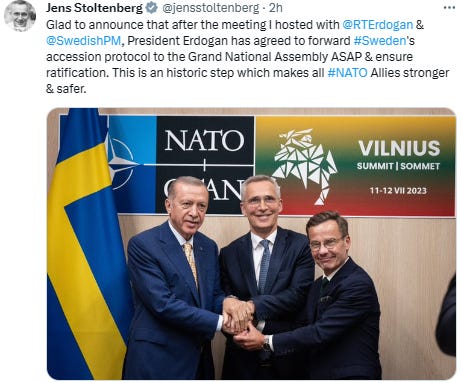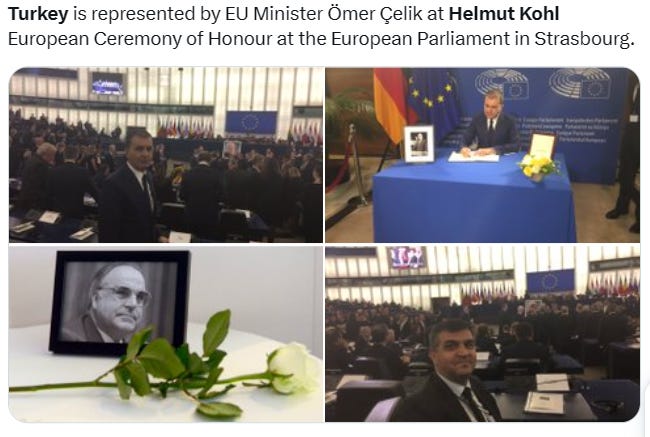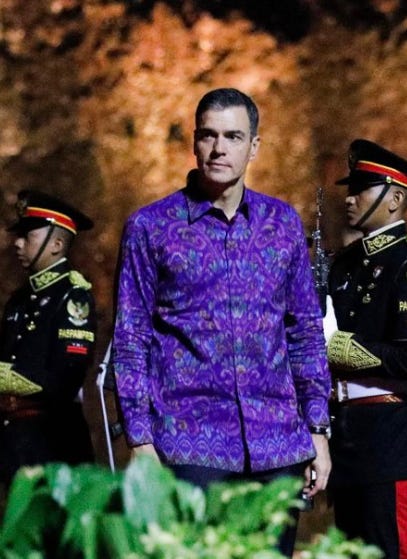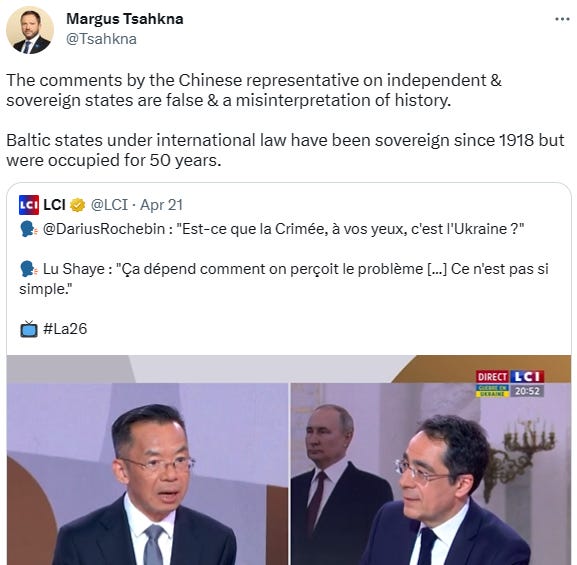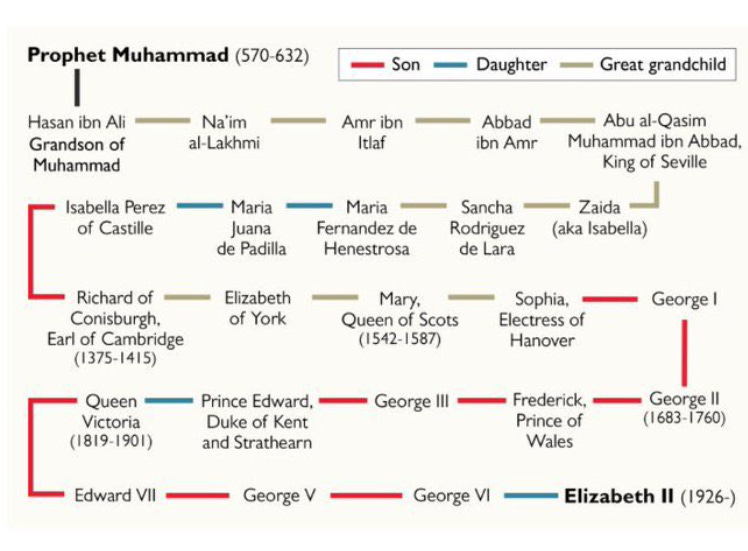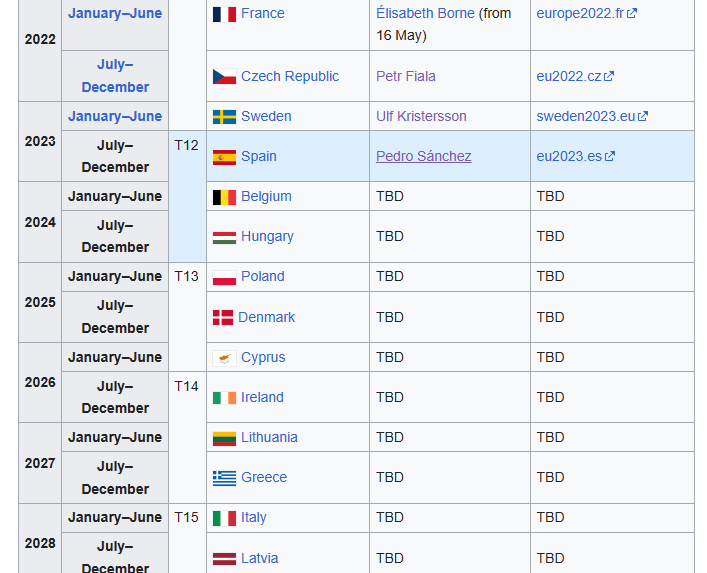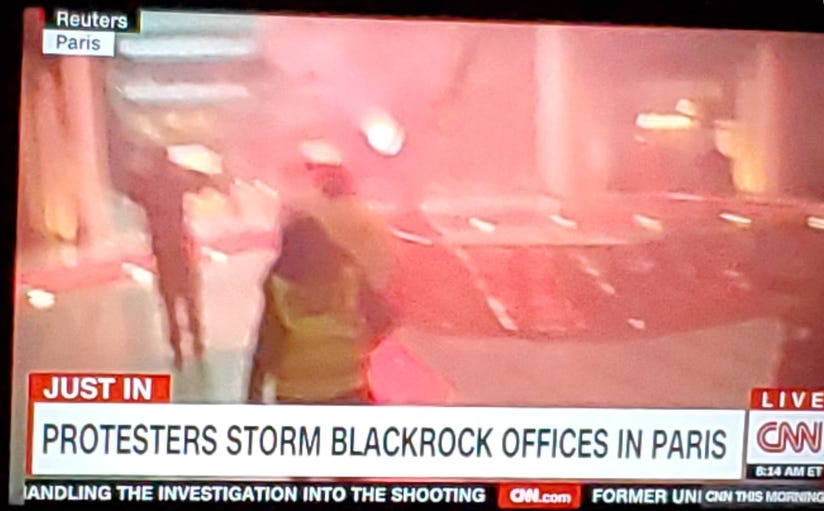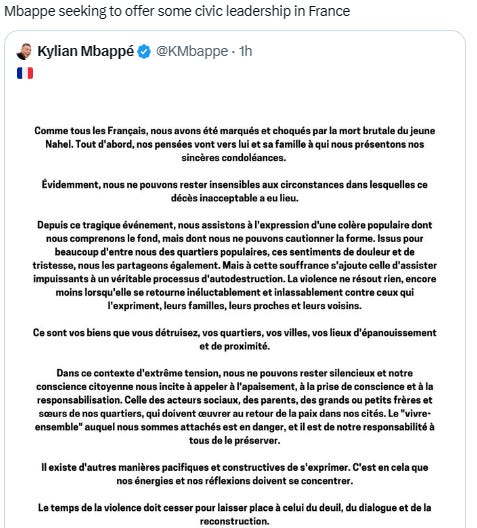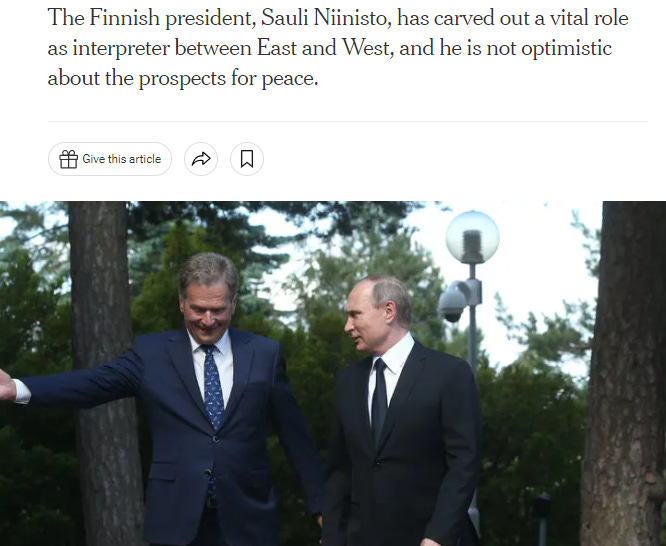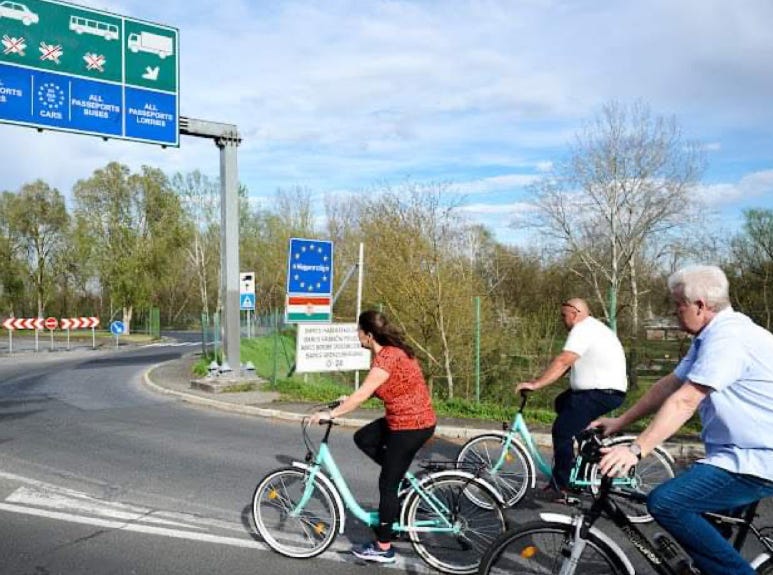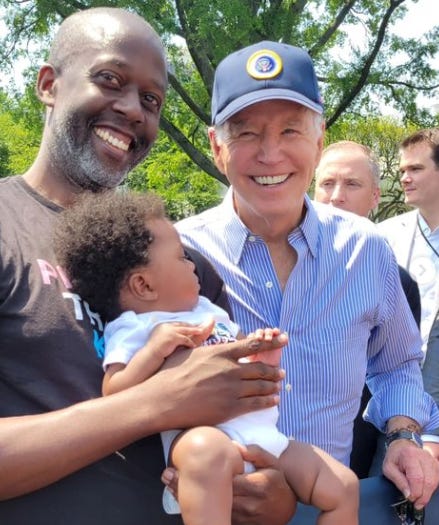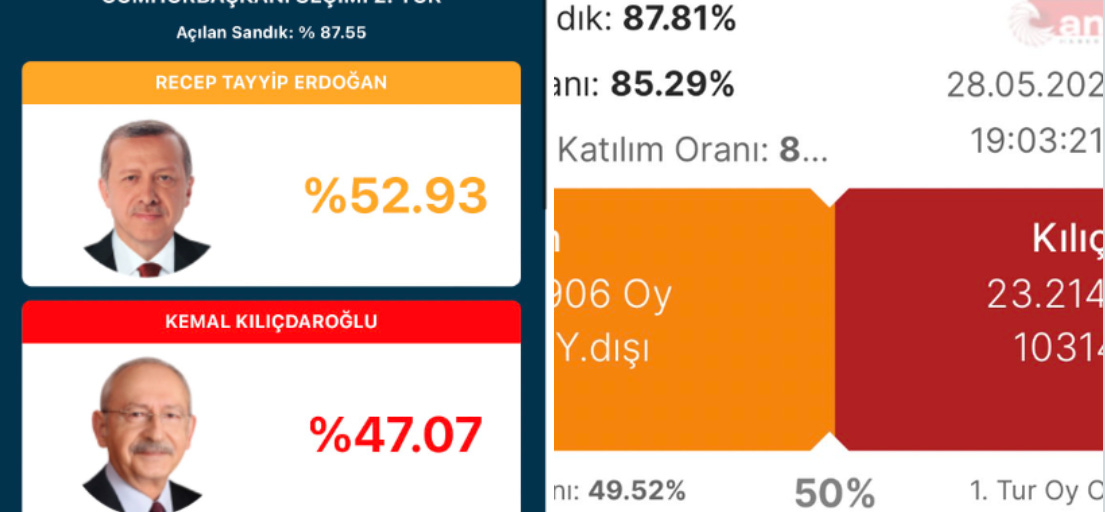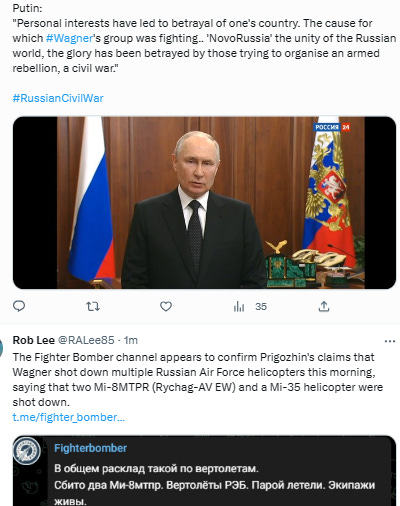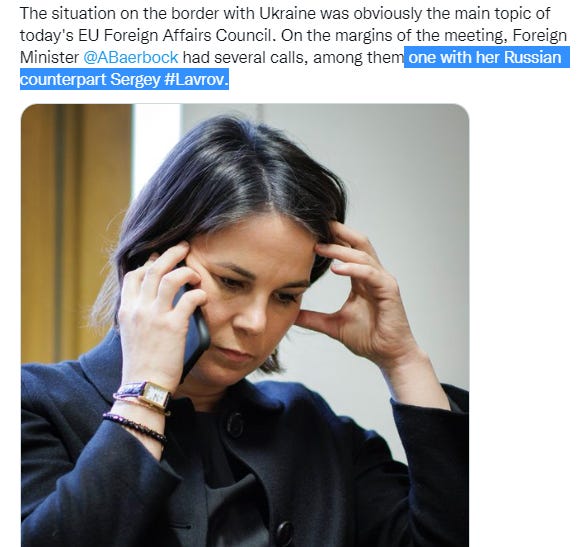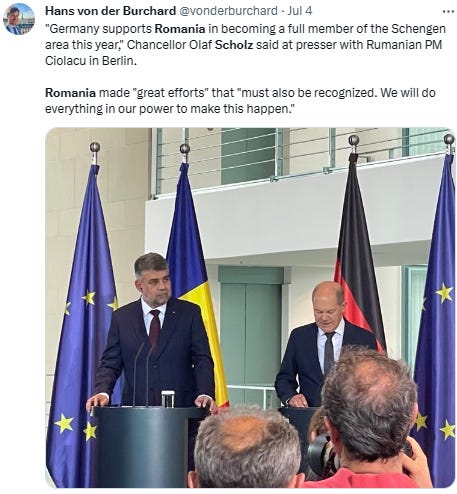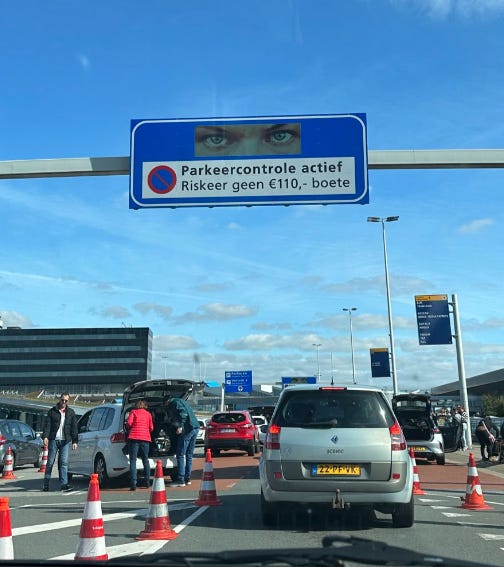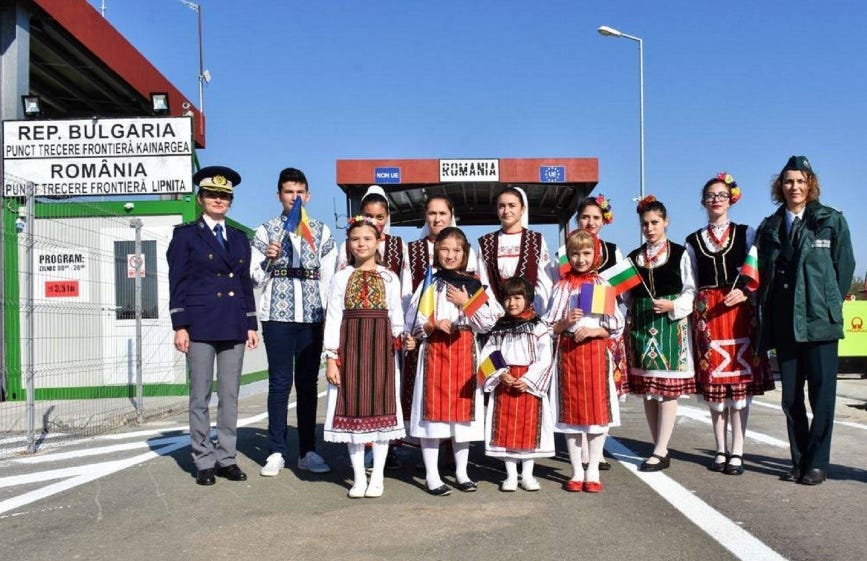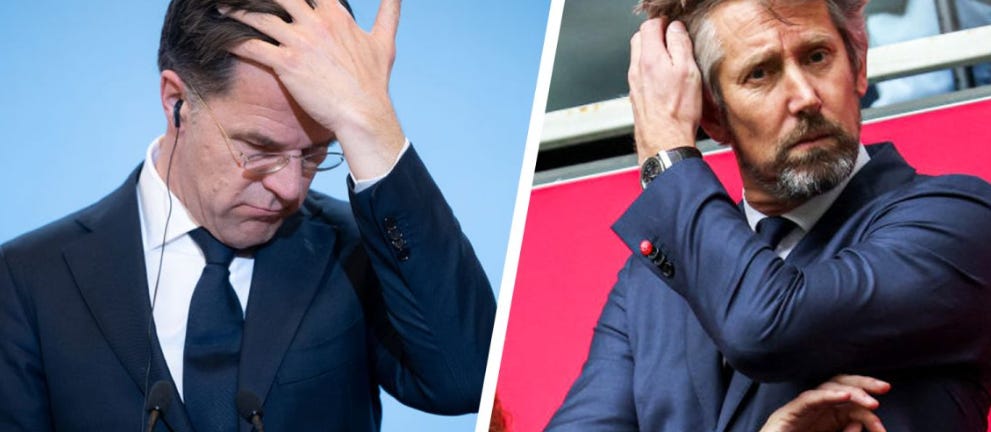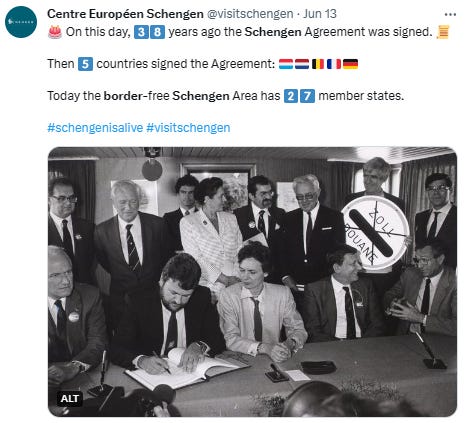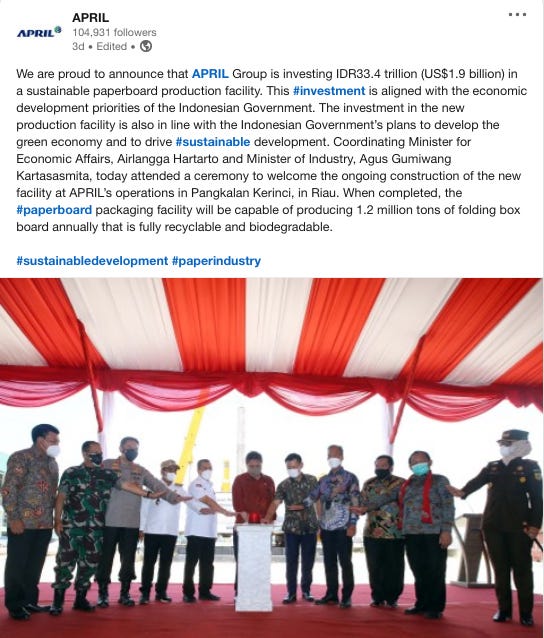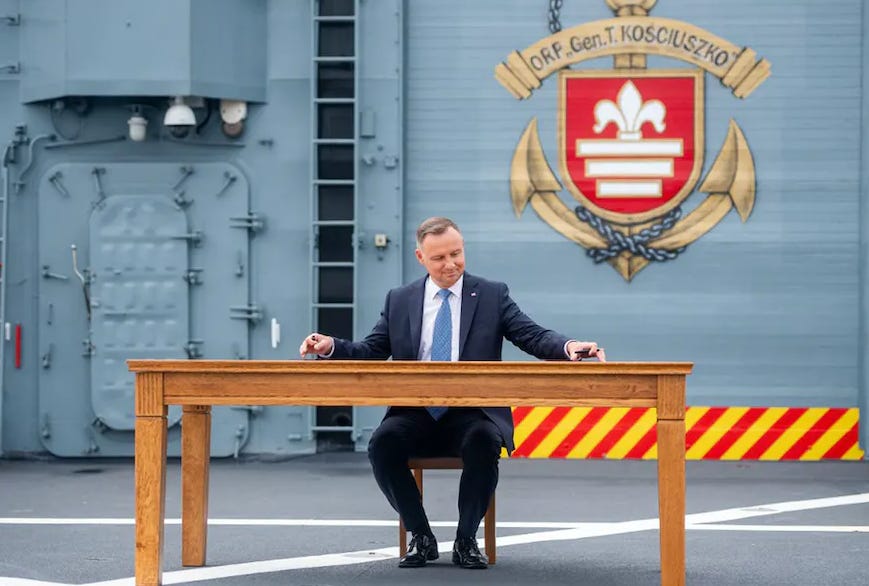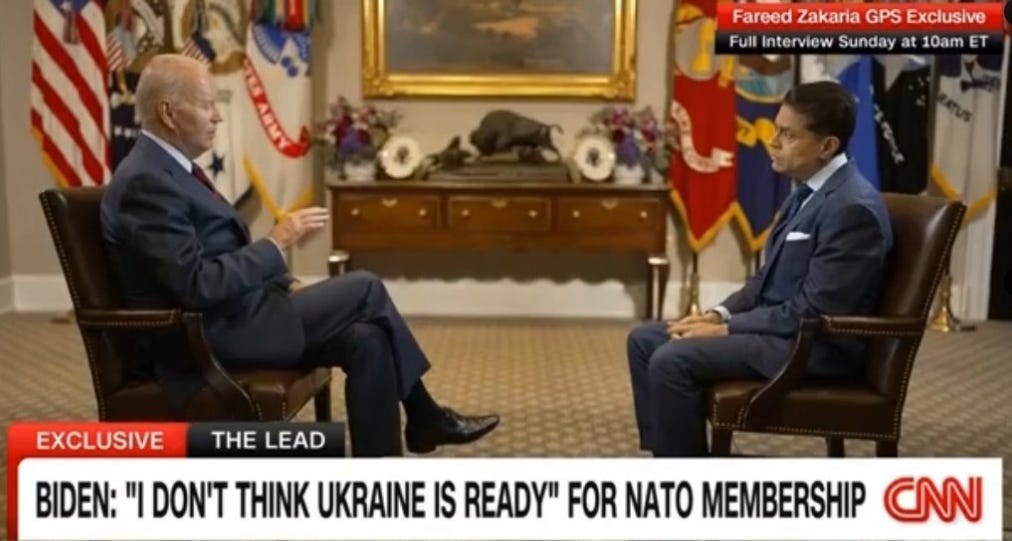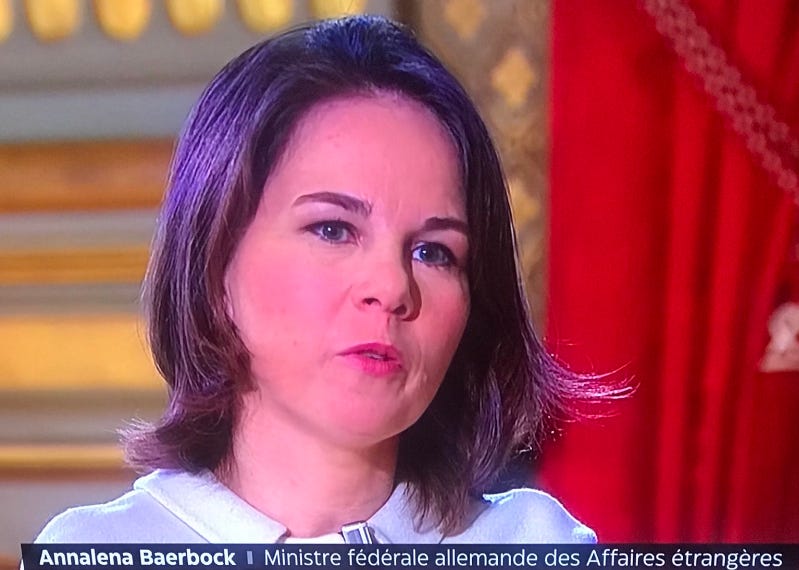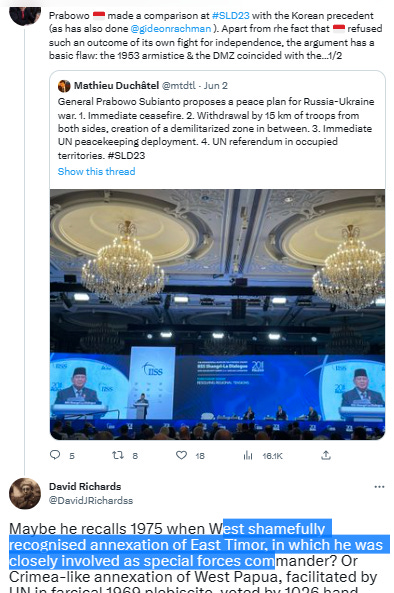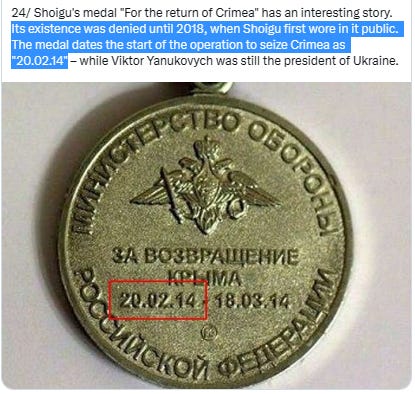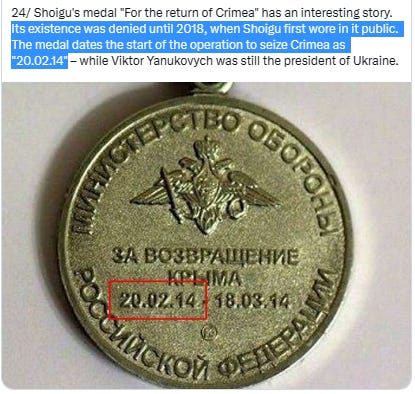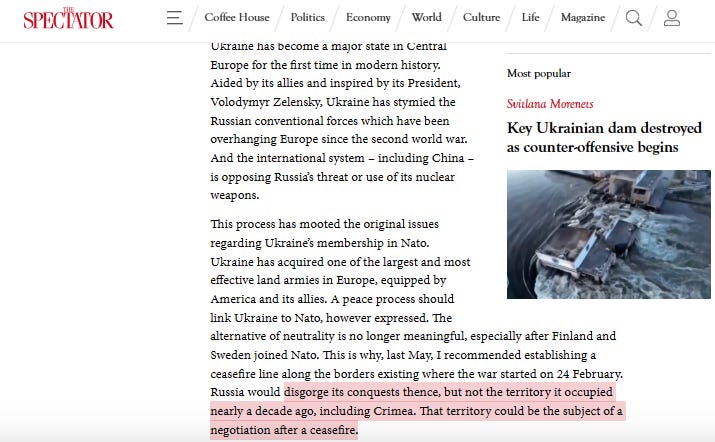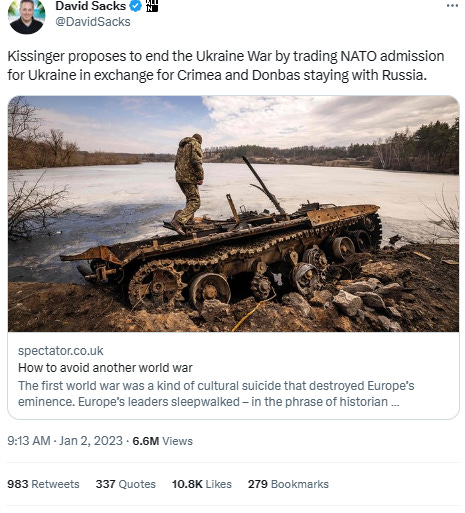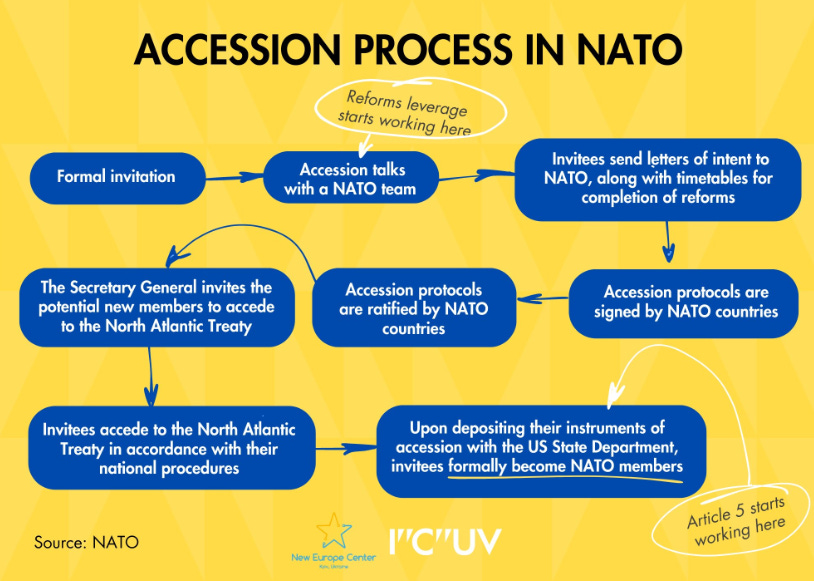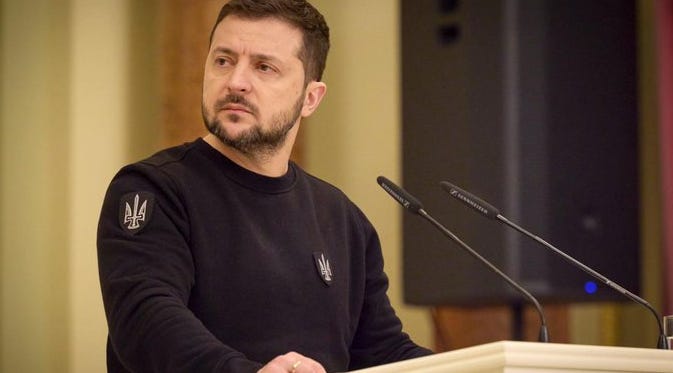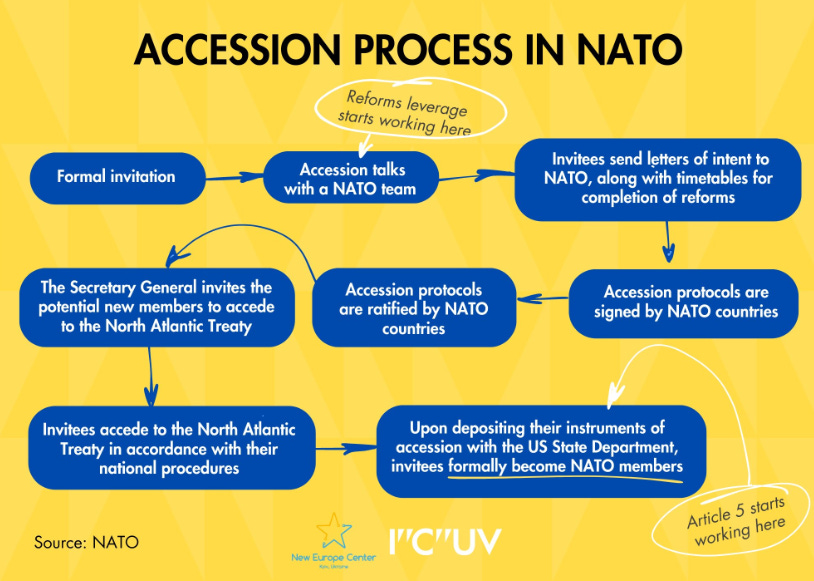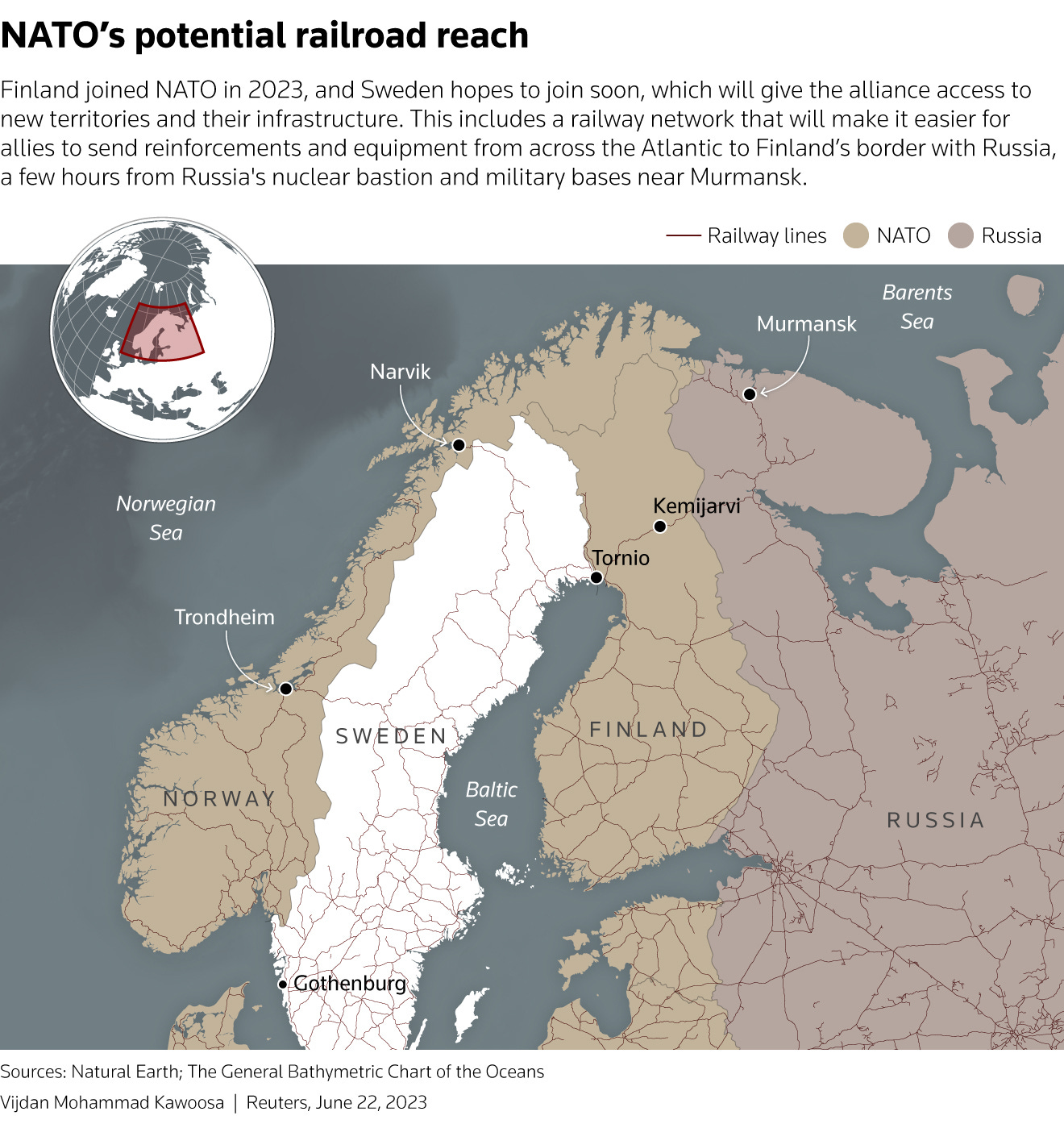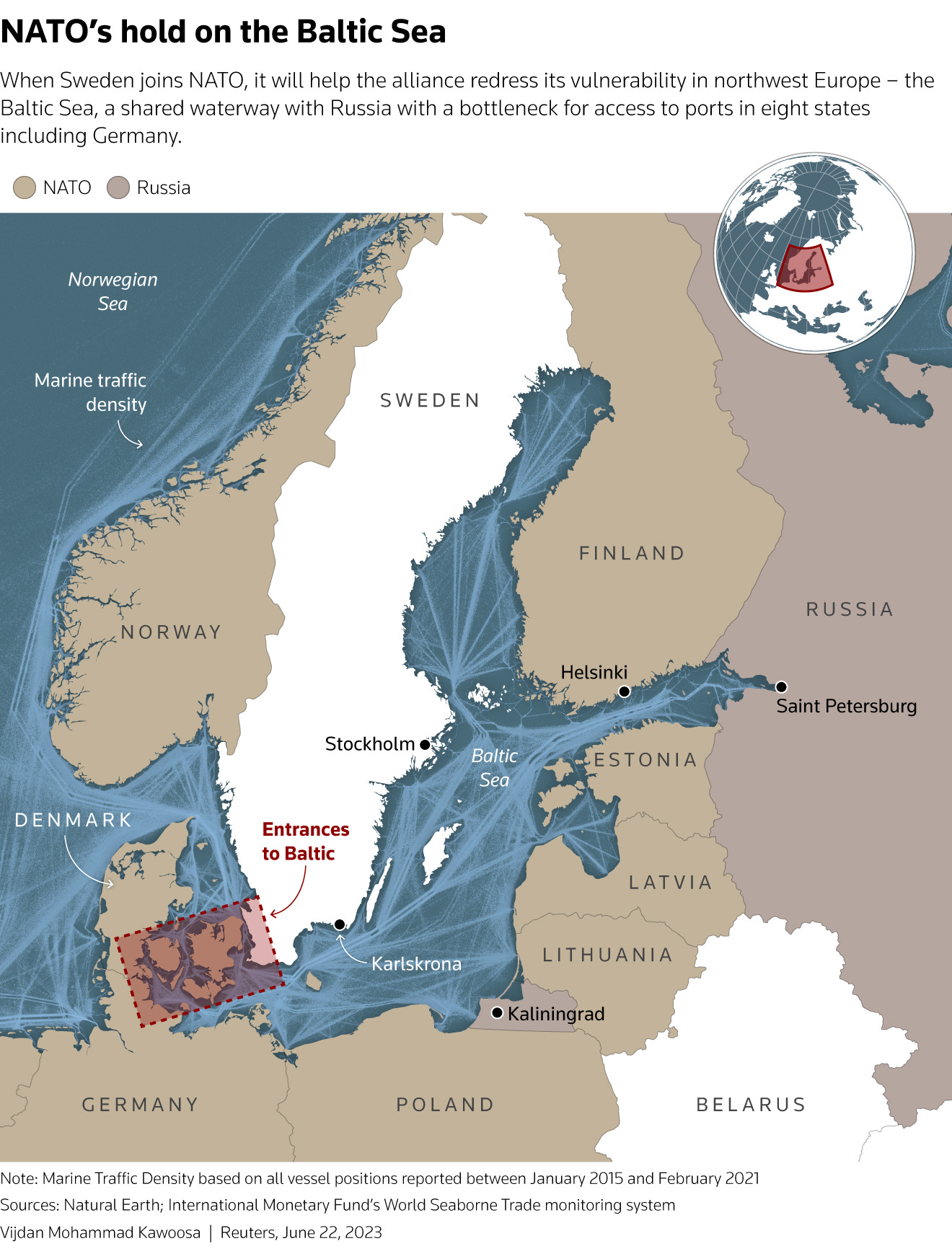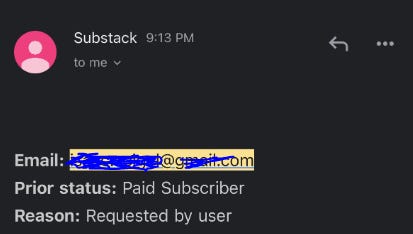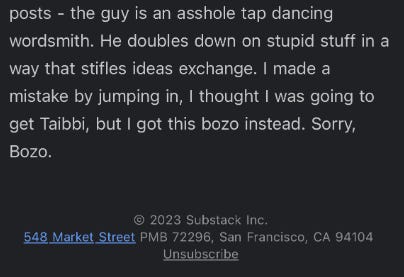Vilnius - Ankara 11.57pm / Brussels 10.57pm / London 9.57pm / Washington DC 4.57pm
At least 2 problems (actually maybe 3) after historic “quad-lateral” deal NATO Stoltenberg-EU Charles Michel-Sweden Kristersson-Turkiye / Turkey Erdogan (maybe “PENTA-lateral”, because 3 weeks ago, Turkiye just say yes for SWEDEN - NATO if the U.S. also say yes for Turkiye to purchasing 3-4 squadrons of F-16). US Congress 5 months ago sent a letter, say no about Turkiye desire to buy F-16.
*National Security Adviser Jake Sullivan, around 2.55am DC / around 8.55am Vilnius and Ankara time, at least 8 hours after historic deal
*11.19am Vilnius / 4.19am DC time, around 11 hours after historic deal Turkiye - Sweden - NATO - EU - U.S.
Why I mentioned the “penta”, or 5th person (United States)? Erdogan knew that Vilnius was the moment he could extract maximal concessions from the West. However, the breakthrough on Swedish membership came earlier than everyone expected. Erdogan drove a hard bargain but, behind the scenes, President Biden and his team worked hard to get Erdogan to “yes” and are to be applauded for their efforts. The cutthroat geopolitical competition against China and Russia does not give Washington the luxury to maintain its policy of social distancing toward Erdogan, despite his awful record on democracy.
Over the past few days, Erdogan had pushed aside NATO’s boilerplate language on alliance solidarity and had forced the West to address his demands. He met with Ukrainian President Volodymyr Zelensky and declared that Ukraine was fit to be a member of NATO, only to also remark that Sweden was not yet ready to join the alliance — that it needed to do more on “terrorism” (a reference to Sweden allowing supporters of the Kurdistan Workers’ Party, or PKK, to hold protests in Stockholm). He then urged the alliance to send a “clear and strong message” about Turkey’s bid to join the European Union — even though membership for his country in the E.U. is likely a pipe dream.
Behind all the public bluster, Erdogan’s most important ask has long been clear: He needs the United States to sell him F-16s. Turkey made a strategic blunder in 2017 by purchasing S-400 missile systems from Russia only to be slapped with U.S. sanctions. Now that Ankara desperately needs to modernize its air force fleet, it has made a formal request to buy new F-16s and upgrade 80 planes in its existing inventory.
The Biden administration has long been in favor of the transaction, but Congress had been blocking it. For many lawmakers on Capitol Hill, Turkey has been an “unfaithful ally,” and congressional leaders have expressed reservations about Turkey’s democratic backsliding and its threatening tone toward its neighbors, including Greece. According to my sources, the White House made headway over the weekend in convincing congressional leaders — in particular, Senate Foreign Relations Committee Chairman Robert “Bob” Menendez (D-N.J.) — that it is better to keep Turkey inside the NATO tent by going ahead with the sale.
On Sunday, Erdogan pointedly thanked Biden for his efforts in trying to secure the F-16s. On Monday afternoon, after NATO Secretary General Jens Stoltenberg’s announcement that Turkey would ratify Sweden’s entry into NATO, Biden’s official statement read “I stand ready to work with President Erdogan and [Turkey] on enhancing defense and deterrence in the Euro-Atlantic area.” The F-16s might not come immediately, but it’s likely that strong assurances were given that they would eventually be delivered.
Back to the 2 problems. First, in Vilnius, one of anti Turkiye not attended NATO Summit: Ursula Gertrud von der Leyen. Ms. von der Leyen, who is president of the European Commission, and Mr. Michel, who heads the European Council, are of equal rank in the E.U. hierarchy. April 7th, 2021, a protocol mishap involving Ursula, was cited by critics as symbolic of Turkey’s treatment of women. It also underlined divisions within the European Union.
If diplomacy is part theater, acted out on meticulously crafted sets, then a protocol blunder this week turned a top-level visit by European Union leaders to Turkey into high drama.
Whether by design or by oversight, Ursula von der Leyen, the president of the European Union’s executive arm, was left awkwardly standing as her colleague Charles Michel, the president of the council representing the bloc’s 27 members, and President Recep Tayyip Erdogan of Turkey took the only two available seats between the E.U. and Turkish flags.
“Uhm …” Ms. von der Leyen was heard saying in a video as she stood, lingering, in the grand room in the Turkish presidential palace on Tuesday while Mr. Michel and Mr. Erdogan settled in their gilded seats, perfectly centered for a photo op. Still standing, she raised a questioning hand.
She ended up propped up by cushions on a side sofa several feet away, and lower than the two men. Adding further insult to the faux pas, her position was mirrored on the other side of the room by Turkey’s foreign minister, Mevlut Cavusoglu, whom she outranks.
Twitter users in Europe swiftly reacted with the hashtag #GiveHerASeat.” Many saw the moment as symbolic of the cultural differences between Mr. Erdogan’s Turkey and the European Union, coming just days after the Turkish leader withdrew his country from the Istanbul Convention, a treaty that seeks to protect women from gender-driven violence.
But if the incident was symbolic of Turkey’s poor record on women’s rights, it also reflected the European Union’s inability to forge a united front in dealing with a country that is a hugely important neighbor and a candidate to become a member of the bloc.
After Mr. Michel declined to turn the situation around by offering Ms. von der Leyen his seat, the institutions offered diverging views of what had happened and why in a post-mortem.
Ms. von der Leyen “should have been seated exactly in the same manner as the president of the European Council and the Turkish president,” said her spokesman, Eric Mamer.
He added that Ms. von der Leyen, the first woman to hold that post, “expects the institution that she represents to be treated with the required protocol, and she has therefore asked her team to take all appropriate contacts in order to ensure that such an incident does not occur in the future.”
Mr. Michel issued a statement late about incident April 2021, blaming Turkish officials’ “strict interpretation” of the rules of protocol for producing “a distressing situation: the differentiated, even reduced, treatment of the president of the European Commission.”
The 2nd problem: EU Parliament Election next year. The Council (Charles Michel as lead) confirmed that the next elections to the European Parliament will take place from 6 to 9 June 2024.
These are the dates applicable under the EU Electoral Act, which determines that the European parliamentary elections take place every five years, from Thursday to Sunday, normally in the first full week of June. The dates were confirmed after exchanges within the Council preparatory bodies.
With 83 million population, Germany of course to be biggest member in EU and EU Parliament, with 69 seats. So Turkiye, 82 million, if to be EU member (and Erdogan will be all-out, after giving green light for Sweden on NATO), will have at least 67-68 seats, 2nd biggest.
Not every EU Parliament member now happy with Turkiye. This month, or more detail, July-December 2023, EU Chair is Spain. PM Pedro Sánchez Pérez-Castejón (to be PM since June 2nd, 2018) already know Erdogan long time ago. Economic Indicators Comparison Spain with a GDP of $1.4T ranked the 14th largest economy in the world (very slightly gap with Indonesia), while Turkey ranked 19th with $771.4B. Spain and Turkey are enjoying a burgeoning economic and political relation.
Two-way trade more than quadrupled since 2002 –excluding the EU, Turkey is Spain’s third most important trade partner after the US and Mexico–, Spanish direct investment in Turkey has grown considerably in the last four years and the countries’ two Leaders co-sponsor the UN-backed ‘Alliance of Civilisations’, an initiative in the field of preventive diplomacy to defuse tensions between the West and Islam (read: dark history of reconquista). Moslem / Muslim Turkiye is 9th biggest after Indonesia (around 242 million), India (around 220 million), Nigeria, Bangladesh, Pakistan, China (around 130 million), Egypt (around 107 million), and Iran (87 million)
EU Chair January-June 2024 (when election EU Parliament held) is Belgium. Charles Michel is former PM Belgium (Oct 11 2014-Oct 27 2019). EU Chair July-December 2024 is Hungary, of course Viktor Orban is close friend - close ally of Erdogan. If Turkiye candidacy in EU very smooth, same promise by Charles Michel 2 hours ago, maybe Turkiye to be officially EU member (even) December this year. Realistic: maybe in July 2025, when EU Chair (July-December 2025) is Denmark, a Stoltenberg NATO’s country.
The expression Christian Club has been used quite often by Turkish analysts or politicians when they talk about their relations with the European Union, ever since the very beginning of negotiating entry. So, even from the start, the Turks feared being rejected by the EU for cultural, or more precisely religious reasons.
We know that in reality, in the European constitutional treaty there are no religious references, so it’s not a question with any validity in European law. But it’s a question to be asked of EU members at the national level, and of public opinion in these countries. Survey from Eurobarometers, that only 30% of Europeans are in favour of enlargement to include Turkey / Turkiye.
It’s pretty obvious that if we look at the political landscapes in different member states it is linked to the rise of the populist right in Europe, with the rise of group interests, racism and a kind of unease toward Islam, and that means, therefore, a big Muslim country like Turkey is probably considered more foreign than others.
That doesn’t stop most of the governments of the EU from being in favour of Turkish membership, and that’s a very interesting difference to analyse politically. Turkiye really only have one member state objecting head-on to Turkish adhesion, and that’s France Macron, thanks for riot after (died of) Nahel, maybe Macron “very hawkish” on Muslim - related issues, and maybe also about Turkiye candidacy on EU.
Germany’s position is still very ambiguous. Austria is also against the adhesion, and then, more globally, there are other member states that are in favour, and some of them defend it seriously, notably the countries of the eastern Mediterranean.
“Obviously, we hear the Mediterranean countries of Europe a lot less today, especially given the financial crisis Europe is submerged in today, because of the question of sovereign debts. So it’s clear that these countries are politically less able to make themselves heard, and that the Franco-German partnership remains today the founding couple of the European Union. It is after all the couple that gives the EU political direction.
Turkish President Recep Tayyip Erdogan opened a new lane of negotiations with his western allies on Monday, explicitly linking for the first time Sweden's NATO membership bid with Turkey's own longstanding bid for European Union membership. Sweden will follow Finland (already / officially member since July 1st, 2023).
Speaking on TV before departing for the Nato summit in Lithuania, Erdogan bought up the EU accession process, which has been stalled for many years for Turkey following deteriorating diplomatic relations between the country and its neighbours.
“First, open the way to Turkey's membership of the European Union, and then we will open [Nato membership] for Sweden, just as we had opened it for Finland," Erdogan said.
In a phone call with US President Joe Biden on Sunday, Erdogan also brought up the question of EU membership.
“Stating that Turkey is principled and honest about EU membership, President Erdogan said that Turkey wants to revive the EU membership process,” a Turkish presidency press release said.
“And that at the Vilnius summit, Ankara wanted the leading countries of the European Union and the EU leadership to give a clear and strong message of support for Turkey's membership.”
Last year, Turkey, Sweden and Finland signed a trilateral memorandum of understanding to satisfy a number of issues regarding terrorism and arms embargoes. The Scandinavian countries, long pillars of neutrality in the region, have pushed to join Nato in the wake of Russia's invasion of Ukraine.
Ankara earlier this year ratified Finland’s Nato membership but is still holding off on Sweden, citing the country's allowing demonstrations against Turkey and the repeated burning of the Quran by far-right activists.
In his phone call with Biden, Erdogan said Sweden had taken some steps in the right direction by making changes in anti-terrorism legislation, including bringing in prison terms of up to four years for individuals convicted of participating in an "extremist organisation" in a way that is intended to promote, strengthen or support the group.
However, Erdogan said, supporters of the Kurdistan Workers’ Party (PKK) continue to freely hold demonstrations in Stockholm, “which nullifies the steps taken”, according to the Turkish presidency press release.
Biden earlier this year tried to get Erdogan’s approval by linking the Sweden issue to Ankara’s multibillion dollar worth of F-16 jet purchase requests from Washington.
On Sunday, Erdogan rebuffed it and said it was wrong to draw such links.
Turkey’s EU accession process is essentially frozen due to various roadblocks, such as controversy over the unification of Cyprus and negative views held of Erdogan in the West.
Ankara currently wants to update the Customs Union and achieve visa liberalisation - the latter recently has become a recurrent theme on Turkish social media because of apparently arbitrary visa denials by European countries.
But Erdogan’s request from Biden wasn’t spontaneous.
Turkish Foreign Minister Hakan Fidan also relayed the same request on EU accession during his phone call with US counterpart Antony Blinken over the weekend.
Biden, during the phone conversation, was pleasantly surprised by Erdogan’s comments on the revival of the EU process, saying that he was instrumental during the Bill Clinton administration on pushing the EU to accept Turkey as a member.
A spokesperson for the White House declined to comment.
Erdogan, a shrewd tactician, is known for broad strategic changes to his foreign policy after every election.
Erdogan maintained friendly relations with both Ukraine and Russia since last year, playing the mediator role, and negotiating a grain deal with the warring parties. He also maintained drone and weapons' sales to Kyiv while receiving Russian investors, tourists and a Moscow bailout for the flagging Turkish economy through a nuclear power plant.
But on Friday, Erdogan stated that he openly supported Ukraine’s Nato membership, something that could make Moscow angry, and signed another drone production deal with Kyiv.
Moreover, he decided to return some of the Ukrainian prisoners of war that were hosted by Ankara as part of a deal between Ukraine and Russia.
The Kremlin condemned Erdogan for releasing the officers, including two senior commanders of the so-called Azov regiment which were declared heroes during the Mariupol Defence, saying that Ankara violated the terms of a deal which suggested Azov officers would stay in Turkey until the end of the conflict.
Erdogan might be thinking that Russian money isn’t enough to keep the ship afloat, and this is (implicit) the 3rd problem actually. 9 Months ago, Turkiye secure a deal around US$50-60 billion with Russia on energy sector.
Erdogan, in an economic U-turn from his unorthodox monetary policy, last month appointed Mehmet Simsek, a former Wall Street banker who is the darling of the markets, as the minister of finance. Simsek hopes to reform the Turkish economy and shrink inflation, and both the budget and trade deficit.
But Ankara needs western investors to come back. Simsek’s first trips were to the UAE and Qatar to seek foreign direct investment, but there is a realisation in Ankara that this won't be enough either.
Between 2002-13, Erdogan anchored Turkey’s foreign policy and democratic credentials to the European Union, making reforms to grant more rights and freedoms to the Turkish public. Subsequent institutional reforms increased investor confidence in Turkey, resulting in billions of dollars of money flowing in the country.
But there is a strong chance that playing the EU card might not work now. Ankara doesn't appears to understand how the EU works.
Of course, more constructive and less confrontational language towards the West will be welcomed by the investors. But what Turkey does with Sweden’s Nato bid is an important sign.
The US didn't have much leverage on the EU’s internal affairs, and didn’t have much in the past even at the height of the Clinton administration in the 90s.
The climate in the EU capitals, such as Berlin and Paris, isn’t suitable to make meaningful progress in areas such as an update for [the] Customs Union and visa liberalisation. It is politically a no-go. And the EU process isn’t something that investors look up to anymore.
For example: Romania. Romania was EU member since 2007. When EU Chairs is Romania (January-June 2019), a historic-but-tricky deal happens: EU ban palm oil from Indonesia with EU Deforestation Regulation (EUDR) - Renewable Energy Directive II (RED II). In Europe, rapeseed and sunflower farmers still need political support, even though their energy density per hectare is low. With the fall of PM Mark Rutte in the Netherlands, this is the 7th regime change and or the fall of leadership in Europe since the Ukraine - War started.
And literally PM Rutte resigned because can’t fight with the farmers party (The Farmer–Citizen Movement, in Dutch: BoerBurgerBeweging, BBB). Soybean is America's opponent, and soybean from the U.S. rocketed (on volume of production) since 2013-2014, and the EU is too busy to declare war trade with the U.S. in the wake of the Ukraine - Russia war and also IRA (Inflation Reduction Act).
Within the EU, sunflower oil comes mainly from Romania (and also Bulgaria), while Germany and France produce most of Europe’s rapeseed oil. The EU Chair in Semester 1/January-June 2019 is Romania, same moment the EU adopted the Delegated Regulation (EU) 2019/807 of 13 March 2019 supplementing Directive (EU) 2018/2001 (EU Red II) in which defines palm oil as a high indirect land-use change (ILUC) risk. This shows that banning palm oil from Indonesia is a “conflict of interest.”
In recent years, Romania increased its production of liquid biofuels, mostly on the account of biogas, conventional biofuel and biodiesel. The timing about punishing Indonesia (actually also Malaysia) about palm oil, and chairing the EU is Romania, lookalike tricky, conflict of interest. With banned palm oil, Romania gets an advantage. But with historic decision in 2019, Romania not yet get full member of Schengen, until now.
Erdogan might be deflecting blame on Sweden to the EU - and it isn’t likely to work.
====
“Holding NATO together is really critical,” says Joe Biden. But the unity of Nato’s 31 members will be put to its biggest test since the beginning of the Ukraine war, at the organisation’s summit in Lithuania this week.
The issue that threatens to divide the alliance is Ukraine’s ambition to join it. One camp, including Poland, the Baltic states and Ukraine itself, wants to see the country put on a fast track to Nato membership.
Another, led by the US and supported by Germany, wants to slow the process down and to promote other forms of security guarantee for Ukraine. Skilful diplomats will probably find a form of words that will paper over these cracks. The final NATO communiqué is likely to assert that Ukraine will join the alliance in the future but avoid any pledge to fast-track the process.
That, however, will not be the end of the matter. Lying behind this argument are fundamental differences about how to end the Ukraine war and how to guarantee the peace once it does end. The hardline camp believes that the goal should be complete victory for Ukraine and humiliating defeat for Russia. They think that the only way to secure peace is to break Russian power and then to bring Ukraine into Nato. They believe that Kyiv has already paid a heavy price for excessive US and German caution in the delivery of weapons — and that the Americans are now repeating this mistake by dragging their feet over future Ukrainian membership of the alliance.
The American and German governments are more cautious about both war aims and securing the peace. One senior German diplomat muses that behind Poland’s talk of the need for a total defeat of Vladimir Putin is the hope that Russia might eventually break apart. That, he says, is an idea that Berlin has no interest in. The Americans are not saying that Ukraine can never join NATO.
But they are gently applying the brakes by insisting that every technical requirement must be fulfilled first. When the indignant hardliners cite the recent fast-tracking of Finland into the alliance as a precedent, the US response is that Finland, as an EU member, already fulfilled all the requirements on anti-corruption measures, democratic governance and the like.
Behind the formal American objections lies a concern that any commitment to fast-track Ukraine into NATO could prolong the war, and introduce dangerous complications into a future peace settlement. For example, would Crimea be covered by a NATO security guarantee for Ukraine?
Some US officials also worry that some allies would actually like to see Nato drawn directly into the war with Russia. “If they want that, they should say so openly,” says one well-placed Washingtonian, “because that’s not our policy.” Rather than push for Nato now, the US is emphasising alternative forms of security guarantee. The idea would be to establish a unique military partnership with Ukraine involving the transfer of high-tech weaponry and intense military-to-military co-operation. The plan, says one US official, is to create a “defence-oriented force that would present too hard a target for any future Russian aggression”.
Biden and others have likened this to the US relationship with Israel. Like the Israelis, the Ukrainians would be a close American ally, furnished with the most advanced military equipment — including, controversially, cluster munitions. But crucially, like Israel, Ukraine would not, initially, be covered by NATO’s Article V security guarantee. All this talk of alternative security guarantees worries some of Ukraine’s most ardent supporters in NATO.
Last week, Kaja Kallas, the Estonian prime minister, put her frustration. “We need practical, concrete steps on the path to NATO membership. I have the feeling that talking about security guarantees actually blurs the picture . . . the only security guarantee that really works . . . is NATO membership.” It is easy to sympathise with Kallas’s view that ambiguity is dangerous and that “grey zones are sources of conflict and war”. Ukraine would certainly be safer inside Nato and experience suggests that Russia would be unlikely to attack a country covered by Article V. But the reality is the American view will have to prevail.
The US accounts for roughly 70 per cent of the total defence spending of all Nato countries. So Nato policy will ultimately be decided in Washington, not Brussels or Vilnius. There are also good political, as well as financial, reasons for Nato to be guided by America’s relative caution. The Biden White House is likely to be the most Ukraine- and NATO-friendly administration that the US can currently produce. The Republicans are the party of Donald Trump, not of the late John McCain. Any move to fast-track Ukraine into NATO could easily become an issue in the US presidential election.
Senate ratification of Ukrainian membership would not be guaranteed. Behind these political facts lies a broader historical reality. Nato came into being in 1949 in the aftermath of the second world war and at the onset of the cold war. The American statesmen who created the alliance had an intellectual and emotional commitment to the defence of Europe that can no longer be taken for granted in Washington. For all their frustrations with the Biden administration, hawkish Europeans should remember that.
=======
High above a railway bridge spanning a foaming river just outside the Arctic Circle, Finnish construction workers hammer away at a project that will smooth the connections from NATO's Atlantic coastline in Norway to its new border with Russia.
"We will be removing some 1,200 of these one by one," says site manager Mika Hakkarainen, holding up a rivet.
Until February 2022, the 37-million euro ($41 million) electrification of this short stretch of rail – the only rail link between Sweden and Finland – simply promised locals a chance to catch a night train down to the bright lights of Stockholm.
After Russia invaded Ukraine, that changed.
Now Finland is part of NATO, and Sweden hopes to join soon.
As the alliance reshapes its strategy in response to Russia's campaign, access to these new territories and their infrastructure opens ways for allies to watch and contain Moscow, and an unprecedented chance to treat the whole of northwest Europe as one bloc,.
The Finnish rail improvements around Tornio on the Swedish border are one example. Due for completion next year, they will make it easier for allies to send reinforcements and equipment from across the Atlantic to Kemijarvi, an hour's drive from the Russian border and seven hours from Russia's nuclear bastion and military bases near Murmansk in the Kola peninsula.
Among forces based there, Russia's Northern Fleet includes 27 submarines, more than 40 warships, around 80 fighter planes and stocks of nuclear warheads and missiles, data collected by the Finnish Institute of International Affairs (FIIA) shows.
In a military conflict with NATO, the Fleet's main task would be to secure control of the Barents Sea and stop ships bringing reinforcements from North America to Europe through the waters between Greenland, Iceland and the UK.
That's something Finland can help NATO resist.
"It's all about containing those kinds of capabilities from the north," retired U.S. Major General Gordon B. Davis Jr. told Reuters.
Besides opening its territory, Helsinki is buying the right assets, particularly fighter jets, "to add value to (the) northeastern defence and, frankly, in a conflict put Russia at risk," he said.
Sweden's contribution will, by 2028, include a new generation of submarines in the Baltic Sea that Fredrik Linden, Commander of Sweden's First Submarine Flotilla, says will make a big difference in protecting vulnerable seabed infrastructure and preserving access – currently major security headaches, as the September 2022 destruction of the Nord Stream gas pipelines read more showed.
"With five submarines we can close the Baltic Sea," Linden told Reuters. "We will cover the parts that are interesting with our sensors and with our weapons."
Analysts say the change is not before time. Russia has been actively developing its military and hybrid capabilities in the Arctic against the West, partly under the cover of international environmental and economic cooperation, the FIIA's Deputy Director Samu Paukkunen told Reuters. Russia's defence ministry did not respond to a request for comment.
Paukkunen's institute estimates Western armed forces are militarily about 10 years behind Russia in the Arctic.
Even with the losses that Russia has sustained in Ukraine, the naval component of the Northern Fleet and the strategic bombers remain intact, Paukkunen said.
NATO-member Denmark phased out its submarine fleet in 2004, part of a move to scale back its military capabilities after the end of the Cold War, and it has yet to decide on future investments. Norway is also ordering four new submarines, with delivery of the first due in 2029.
"It seems to me that we have some catching up to do, because we haven't done it properly for the last 25 years," said Sebastian Bruns, a senior researcher into maritime security at Kiel University's Institute for Security Policy.
Both developments show how the expanded alliance will reshape Europe's security map. The region from the Baltic in the south to the high north may become almost an integrated operating area for NATO.
"For NATO it's quite important to have now the whole northern part, to see it as a whole piece," Lieutenant Colonel Michael Maus from NATO's Allied Command Transformation told Reuters. He chaired the working group which led Finland's military integration into NATO.
"With (existing) NATO nations Norway and Denmark, now we have a whole bloc. And thinking about potential defence plans, it's for us a huge step forward, to consider it as a whole area now."
This became clear in May, when Finland hosted its first Arctic military exercise as a NATO member at one of Europe's largest artillery training grounds 25 km above the Arctic Circle.
The nearby town of Rovaniemi, known to tourists as the home of Santa Claus, is also the base of Finland's Arctic air force and would serve as a military hub for the region in case of a conflict. Finland is investing some 150 million euros to renew the base to be able to host half a new fleet of 64 F-35 fighter jets, due to arrive from 2026.
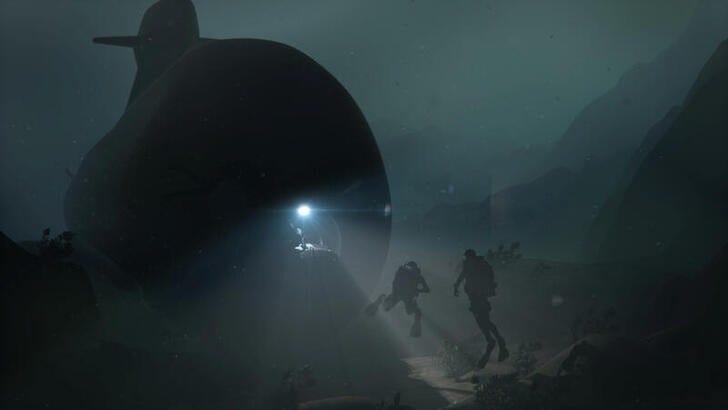
For the May manoeuvres, nearly 1,000 allied forces from the United States, Britain, Norway and Sweden filled the sparse motorways as they joined some 6,500 Finnish troops and 1,000 vehicles.
Captain Kurt Rossi, Field Artillery Officer of the U.S. Army, led a battery bringing in an M270 multiple rocket launcher.
It was first shipped from Germany across the Baltic Sea, then trucked nearly 900 km to the north.
"We haven't been this close (to Russia) and been able to train up in Finland before," Rossi said.
If there was a conflict with Russia in the Baltic Sea area – where Russia has significant military capabilities at St. Petersburg and Kaliningrad – the shipping lane NATO used for that exercise would be vulnerable. Finland relies heavily on maritime freight for all its supplies – customs data shows almost 96% of its foreign trade is carried across the Baltic.
The east-west railway link across the high north will open up an alternative, which could prove crucial.
"I think the Russians can quite easily interrupt the cargo transportation by sea so basically this northern route is the only accessible route after that," said Tuomo Lamberg, manager for cross border operations at Sweco, the Swedish company designing the electrification.
But that risk, too, may recede when Sweden joins NATO.
Down beneath the Baltic Sea waterline, the submarine commander Linden shows a reporter the captain's quarters of the Gotland, one of four submarines currently in Sweden's fleet, which will bring NATO's total in the Baltic countries to 12 by 2028.
The Kiel institute expects Russia to add one to three submarines in the coming years, to bring its Baltic submarine total to four, along with its fleet of around six modern warships. Its capabilities at Kaliningrad also include medium-range ballistic missiles.
"This can be the loneliest place in the world," says Linden, who captained the vessel for many years. On a typical mission, which lasts two to three weeks, there is no communication with headquarters, he said.
The Gotlands, like Germany's modern Type 212 submarines, will be among NATO's most advanced non-nuclear submarines and can stay out of port for significantly longer than most other conventional models, the researcher Bruns said read more .
"I would say, without a doubt, that the Gotland-class and the German Type 212 are the most capable non-nuclear submarines in the world," said Bruns.
"There is nothing that beats them, quite literally. In terms of how quiet they are, the engines they use, they are particularly quiet and very maneuverable."
In submarine warfare, Linden said, the primary question is where the adversary is. A careless crew member dropping a wrench or slamming a cupboard door can lead to detection.
"We talk quietly on board," Linden said. "You shouldn't believe ... films where orders are shouted."
The Gotland is based at Karlskrona, about 350 km across the Baltic from Kaliningrad. With an average of 1,500 vessels per day trafficking the Baltic according to the Commission on Security and Cooperation In Europe, it is one of the world's busiest seaways – and there is really only one way out, the Kattegatt Sea between Denmark and Sweden.
The shallow and crowded seaway can only be accessed through three narrow straits that submarines can't pass through without being detected.
LISTENING POWERS
If any of the straits were to be closed, the sea freight traffic to Sweden and Finland would be hit hard and the Baltic states completely cut off. But with Sweden in the alliance, that becomes more preventable, because Sweden's submarines will add to NATO's listening powers.
Linden says the Gotland's crew can sometimes hear Russia's vessels. The range of sound travel varies partly depending on the seasons. In winter, he said, you can hear as far as the island of Oeland – just a bit further than the distance between London and Birmingham in the UK.
"You can lie outside Stockholm and hear the chain rattling on Oeland's northern buoy," Linden said. "In the summer you can hear maybe 3,000 meters."
By 2028, once Sweden takes delivery of a new design of vessel, this capacity will increase. The new design, known as A26, will allow submarine crews to deploy remotely operated vehicles (ROVs), combat divers or autonomous systems of some sort without putting the submarine or crew at risk, Bruns said.
"Depending on the mission it could be an ROV that safeguards a pipeline or data cable, it could be combat divers that go ashore in the cover of darkness, it could be almost anything."
That capacity will increase Sweden's scope to control comings and goings through the Baltic.
"If you count all the forces, with Germany in the lead and Sweden and Finland coming on board, all those have really shifted the balance in the Baltic Sea quite significantly," said Nick Childs, Senior Fellow for Naval Forces and Maritime Security at the International Institute for Strategic Studies.
"It would make it very difficult for the Russian Baltic Sea fleet to operate in a free way," he said. "But it could ... still pose challenges for NATO."
==========END————
Thank you, as always, for reading. If you have anything like a spark file, or master thought list (spark file sounds so much cooler), let me know how you use it in the comments below.
If you enjoyed this post, please share it.
If a friend sent this to you, you could subscribe here 👇. All content is free, and paid subscriptions are voluntary.
————
-prada- Adi Mulia Pradana is a Helper. Former adviser (President Indonesia) Jokowi for mapping 2-times election. I used to get paid to catch all these blunders—now I do it for free. Trying to work out what's going on, what happens next. Arch enemies of the tobacco industry, (still) survive after getting doxed. Now figure out, or, prevent catastrophic situations in the Indonesian administration from outside the government. After his mom was nearly killed by a syndicate, now I do it (catch all these blunders, especially blunders by an asshole syndicates) for free.
(Very rare compliment and initiative pledge. Thank you. Yes, even a lot of people associated me PRAVDA, not part of MIUCCIA PRADA. I’m literally asshole on debate, since in college). Especially after heated between Putin and Prigozhin. My note-live blog about Russia - Ukraine already click-read 4 millions.
=======
Thanks for reading Prada’s Newsletter. I was lured, inspired by someone writer, his post in LinkedIn months ago, “Currently after a routine daily writing newsletter in the last 10 years, my subscriber reaches 100,000. Maybe one of my subscribers is your boss.” After I get followed / subscribed by (literally) prominent AI and prominent Chief Product and Technology of mammoth global media (both: Sir, thank you so much), I try crafting more / better writing.
To get the ones who really appreciate your writing, and now prominent people appreciate my writing, priceless feeling. Prada ungated/no paywall every notes-but thank you for anyone open initiative pledge to me.
(Promoting to more engage in Substack) Seamless to listen to your favorite podcasts on Substack. You can buy a better headset to listen to a podcast here (GST DE352306207). Listeners on Apple Podcasts, Spotify, Overcast, or Pocket Casts simultaneously. podcasting can transform more of a conversation. Invite listeners to weigh in on episodes directly with you and with each other through discussion threads. At Substack, the process is to build with writers. Podcasts are an amazing feature of the Substack. I wish it had a feature to read the words we have written down without us having to do the speaking. Thanks for reading Prada’s Newsletter.




